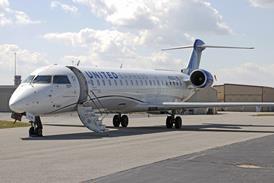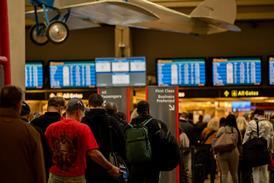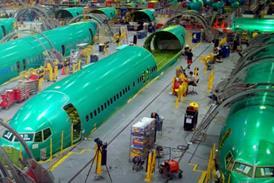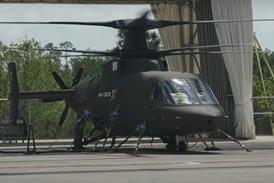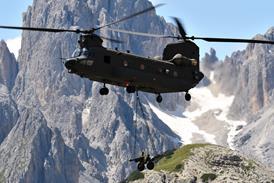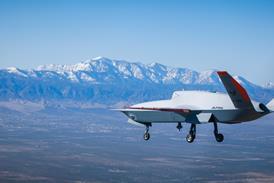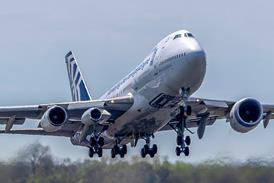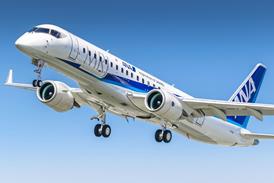Boeing’s preliminary findings are that aircraft movement and vibration are causing cargo floor restraint locks on the US Air Force (USAF) KC-46A Pegasus tanker to jostle and rotate to an unlocked position.
The company believes the cargo restraints, manufactured by Ancara Cargo, are well made and designed, but interact in an unexpected way with the track on the aircraft deck. It is considering a secondary lock to hold the first lock in place, but it is concerned an additional mechanism might slow loading and unloading speeds. Each pallet is clamped to the cargo floor via four restraints – one on each side.
The company has yet to submit a solution to the USAF but says it is close. It declines to give a timeline. In the meanwhile, the airframer has proposed a way to use tie-down straps to secure and carry cargo for some missions. Boeing says that no locks have come entirely undone and the issue has only been witnessed during one mission.
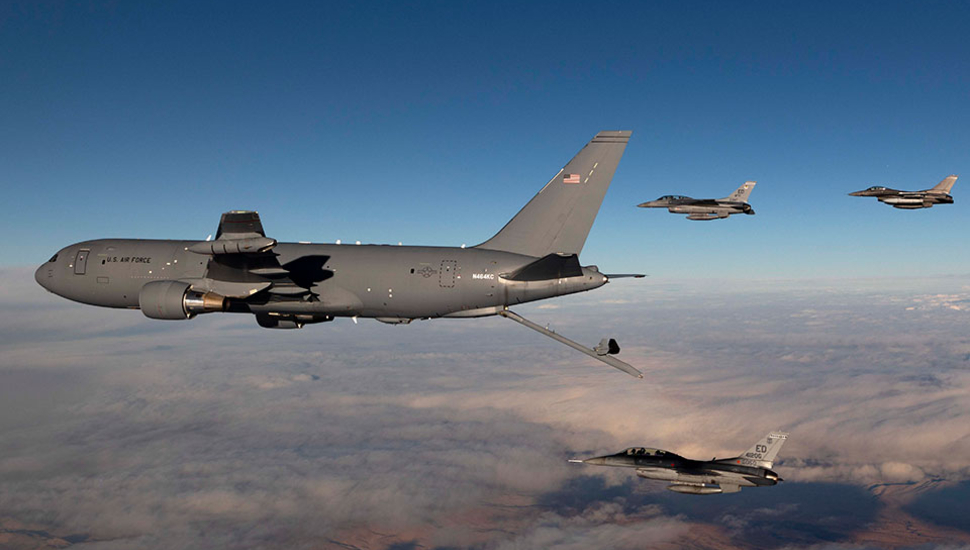
The KC-46A. The latest example delivered had no FOD issues.
USAF
The USAF recently banned the Boeing KC-46A from carrying passengers and cargo after it discovered cargo floor restraint devices unlocking during a recent operational test and evaluation mission. The service labeled the issue a category 1 deficiency: a problem “which may cause death or severe injury; may cause loss or major damage to a weapon system; critically restricts the combat readiness capabilities of the using organization; or results in a production line stoppage.”
As Boeing looks for a solution to the KC-46As cargo lock problem, General Arnold Bunch, commander of the US Air Force Materiel Command, says the last tanker the service received was free of foreign object debris (FOD). The service previously criticized the company’s “culture” for allowing aircraft to be delivered with tools, rubbish and left-over parts such as loose nuts inside the airframe.
Boeing KC-46A programme director James Burgess says culture issues stemmed from letting its best practices lapse, such as requiring tool check in and check out.
“We’ve made a bunch of improvements in terms of our procedures, training, adherence to existing procedures,” he says. “We’ve really put an emphasis all the way through the production system around cleaning as you go.”
Boeing has delivered 19 tankers to the USAF in 2019 and believes it can still hit its 36 aircraft goal for the year, despite slowdowns caused by FOD issues.
The company is hoping to put production issues behind it so it can focus on international sales. It announced on 17 September that it started manufacturing the wing spar for Japan’s first KC-46A, scheduled for delivery in early 2021.
Story updated on 18 September to include new information from Boeing clarifying that the cargo restraint unlocking issue occurred during one mission, not during a single flight.
Source: FlightGlobal.com

